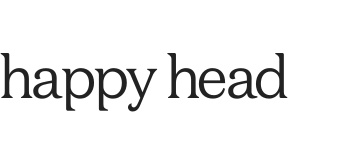Diet and Hair Loss: Is There a Relationship?

When you’re losing your hair, you’ll try just about anything to make it stop. Shampoos, conditioners, essential oils, vitamins… they’re all fair game. The easier and less invasive, the better. So, it’s only natural that diet is a hot topic. Diet is a manageable lifestyle change that could make a difference.
But, if you’re like most people, you probably have more questions than answers when it comes to how diet and nutrition affect your hair. According to a 2017 study conducted by the International Food Information Council (IFIC), there’s a lot of conflicting information, causing confusion about what to eat. Determining whether specific foods will help or hurt your hair loss condition is even more challenging. We hear it all the time from patients. “Can alopecia be reversed by changing my diet?” “Which diet will best reduce the inflammation on my scalp?” “Do I have to go gluten, dairy, and sugar-free?”
Before you resort to radical measures, keep reading. We’ll help you separate truth from fiction and share firsthand information from our own Dr. Ben Behnam, board-certified dermatologist and co-owner of Happy Head hair loss solutions.
Can Improving Your Diet Prevent Further Hair Loss and Stimulate Growth?
Does what you eat affect your hair? That’s the question that most people want to be answered. After all, why bother changing your diet if it won’t make a difference? The answer is yes; nutrition may indeed affect your hair. One study found that nutritional deficiencies can cause telogen effluvium, androgenetic alopecia, or alopecia areata. It also found that over-supplementation can lead to hair loss as well.
The Wrong Diet Really Can Cause Scalp Inflammation
Nutritional deficiencies aren’t the only problem. Scalp inflammation caused by an unhealthy diet is another issue. A high fat, high-cholesterol diet has been found to stimulate the inflammatory process on the scalp. A study conducted in 2018 found that mice who were fed a traditional western diet experienced skin discoloration, inflammation, and hair loss. The mice’s hair turned black, gray, then white before falling out. The diet, which induced inflammation, mimicked the aging process in humans and aged the mice’s hair by 36 weeks. The hypothesis is that when what you eat generates an inflammatory response, it causes your hair to age prematurely.
Which Diet Should You Choose to Prevent Hair Loss?
Now that we’ve established that the wrong diet is a recipe for disaster when it comes to your hair, which diet should you consider? Keto, Autoimmune Protocol (AIP), Mediterranean… the list of possibilities seems endless. The truth is that further research is needed on the use of diet in alopecia treatment. One study indicates that the Mediterranean diet, which contains foods with anti-inflammatory properties, may stimulate hair growth and health among people with androgenetic alopecia. Figuring out the differences between each diet gets tricky, though. In many cases, overlap exists in the philosophies behind the diets.
A Protein-rich Diet Helps Build Keratin
Regardless of which diet you choose, it’s important to select a protein-rich diet filled with fresh, unprocessed foods. Hair is primarily composed of keratin, a mixture of filament-forming proteins. To make keratin, your body needs protein. All protein is not created equal, though, according to Dr. Behnam. “Select pasture-raised chickens, raised on a farm and not in a cage,” says Behnam. “When chickens are trapped in a cage, their testosterone levels increase from the stress of being in the cage. When you eat caged chicken, you get extra testosterone that can potentially convert to DHT leading to more hair loss.”
Vegetarians Often Lack Enough Protein in Their Diets
Dr. Behnam finds that his patients who are vegetarians tend to lack the protein and vitamins necessary for adequate hair growth. We’ll talk a little more about vitamins later, so let’s focus on protein for now. Some excellent sources of plant protein can compensate for animal protein. Those sources include nuts and nut butter, lentils, beans, peas, leafy green vegetables such as broccoli, spinach, and brussel sprouts.
Dr. Behnam is a big advocate of protein powder, not only for vegetarians, but for all of his patients. It’s important to use the right type, though. According to Behnam, “Two types of protein powder are on the market. One is whey protein isolate. Whey protein isolate powder is easily found in retail stores in muscle milk, and other types of sports shakes. It’s less expensive. The only problem is that whey protein isolate increases the concentration of amino acids such as valine and isoleucine, which lead to higher testosterone production. That extra testosterone has the potential to convert to DHT and cause hair loss. The solution is to use whey protein concentrate. Whey protein concentrate is harder to find, but it will boost your protein without increasing your testosterone or DHT levels.”
Do You Have to Give Up Caffeine?
If you can’t seem to get moving in the morning without a cup of coffee, don’t despair. “Caffeine doesn’t affect testosterone levels,” says Dr. Behnam. “You can enjoy it without worrying. I recommend that you stay away from energy drinks, soy milk, and anything high in MSG, though.”
Nutritional Supplements
Vitamins and supplements aren’t a big deal to most people. You don’t need a prescription to get them, so they’re safe, right? Not so fast. Vitamins and supplements aren’t always as innocuous as they seem. There are a couple of things you need to know:
- The FDA does not regulate dietary supplements
- Over-supplementation of selenium, Vitamin A, Vitamin E, and other vitamins have been associated with hair loss
That said, Dr. Behnam usually tests his patients’ Vitamin D and iron levels because deficiencies are prevalent and are well-documented reasons for hair loss. Vitamin D plays a crucial role in the hair growth cycle. While the exact reason why iron deficiency causes hair loss is unknown, reversal of iron deficiency in mice led to a reversal of hair loss.
Here’s the inside scoop on other essential vitamins:
Biotin
There has been a lot of hype about biotin supplements, shampoos, conditioners, and more. Truth be told, biotin deficiency is rare. Clinical trials have not shown biotin to be effective in stimulating hair growth without a true deficiency.
Zinc
Zinc deficiency can be either acquired or inherited. It is common among vegetarians since vegetables contain less zinc than meat. Zinc deficiency causes telogen effluvium and brittle hair.
Vitamin A
Vitamin A is the main ingredient in retinoids and retinoic acid. It has been proven to work in conjunction with Minoxidil and Finasteride to increase absorption of the medications. Vitamin A deficiency does not cause hair loss, although a connection between over-supplementation and hair loss has been found.
Vitamin E
It’s not common for people to have vitamin E deficiencies. More research needs to be conducted, but in one small study with 21 participants, people who received vitamin E supplements had an increase in hair count compared to people in the placebo group. Too much vitamin E is too much of a good thing. It can increase the risk of bleeding and decrease thyroid hormone production, resulting in hair loss.
Balancing Your Diet Is A Process
Learning how to eat for healthy hair takes time. Sometimes you don’t know if changing your eating habits or adding a particular vitamin will help until you try it. If you’ve already been diagnosed with male or female pattern hair loss or some other type of alopecia, supplementing your diet with topical medications such as Minoxidil, Finasteride, Spironolactone, or Duasteride may be a good option for you. Topical medications have been found to be as effective as oral medications without the bothersome side effects. Even better, like your diet, our formulas can be customized to meet your specific needs. For more information, contact us to determine whether you are a good candidate for Happy Head or one of our other prescription-grade hair loss solutions.
Resources:
(01) https://foodinsight.org/survey-nutrition-information-abounds-but-many-doubt-food-choices/
(02) https://www.ncbi.nlm.nih.gov/pmc/articles/PMC5315033/
(03) https://www.ncbi.nlm.nih.gov/pmc/articles/PMC6065400/
(04) https://www.ncbi.nlm.nih.gov/pmc/articles/PMC7109385/
(05) https://www.ncbi.nlm.nih.gov/pmc/articles/PMC5315033/
(06) https://www.ncbi.nlm.nih.gov/pmc/articles/PMC5315033/
(07) https://www.ncbi.nlm.nih.gov/pmc/articles/PMC5315033/
(08) https://www.ncbi.nlm.nih.gov/pmc/articles/PMC5582478/#:~:text=Despite%20its%20popularity%20in%20the,multiple%20factors%2C%20including%20patient%20history.
(09) https://www.ncbi.nlm.nih.gov/pmc/articles/PMC5315033/
(10) https://www.ncbi.nlm.nih.gov/pmc/articles/PMC5315033/
(11) https://www.ncbi.nlm.nih.gov/pmc/articles/PMC5315033/


